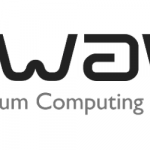GlaxoSmithKline Compares Quantum Annealing Versus Gate-Based Quantum Computers for Pharmaceutically-Relevant Life Science Problems
(ZDNet) GlaxoSmithKline (GSK) have been comparing top-notch quantum devices, comparing the methods put forward by IBM and D-Wave to get a better picture of what to expect from those leading the quantum race.
The conclusion? The method used by D-Wave, called quantum annealing, can already compete against classical computers and start addressing realistic problems; on the other hand, gate-based quantum computers, such as the one that IBM is building, remain short of enough qubits to run problems that are relevant to the real world.
Quantum Computing
All is not lost for gate-based methods – quite the contrary, in fact. GSK’s researchers foresee that the expected increase in qubit count in computers like these will allow quantum devices to show a significant performance advantage over classical hardware, for pharmaceutically-relevant life science problems, but also many other types of application.
The results of the scientists experiments are still in pre-print, and are yet to be certified by peer review; in addition, the trials only focus on a specific problem – the use of quantum computing to assist drug discovery. Nevertheless, the research offers a valuable overview of the capabilities of quantum devices as they stand, and of the limitations of different approaches to quantum computing.
The problem addressed by the scientists is well-established in classical computing. Called codon optimization, it consists of finding sequences of genetic code, called codons, that will ultimately lead to the expression of a particular gene. Up to six codons can be required to represent an amino acid, which in turn form the proteins that determine the gene.
the researchers set out to investigate the potential impact of quantum computing for codon optimization. Using a quantum algorithm, called the Binary Quadratic Model (BQM) that can run on different quantum platforms, the team decided to test two markedly different models: D-Wave’s quantum annealing method, and IBM’s gate-based quantum computer.
D-Wave’s technology holds a lot of potential. The Canadian company’s 2,000-qubit Advantage system was used to run the BQM; the system was capable of mapping 30 amino acids, and when compared to the classical algorithms, it was found to achieve similar results. “(The computer) is found to be competitive in identifying optimal solutions, and future generations (…) may be able to outperform classical GAs,” concluded the scientists.
Current generations of quantum hardware are not mature enough to surpass classical computing for problems such as codon optimization. In other words, D-Wave’s processor did not run the calculation better than a classical algorithm; but it proved that a quantum device could perform competitively, even on a life-size problem.



















